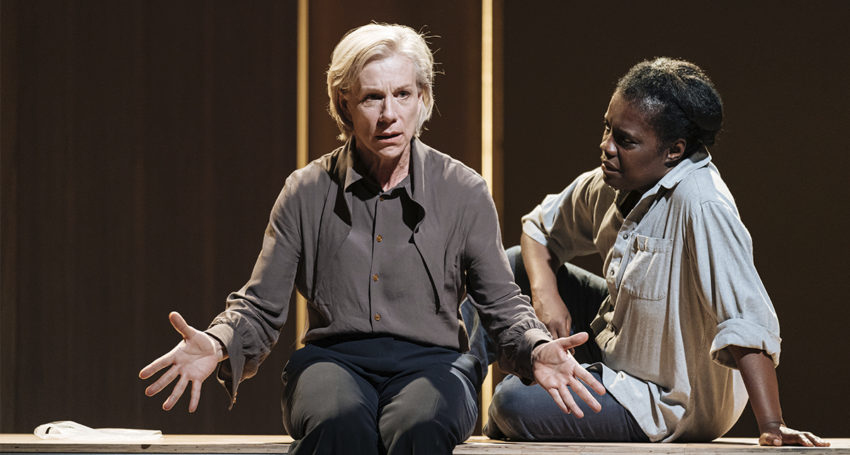In this stunning reimagining of Arthur Schnitzler’s hundred-year-old play, writer-director Robert Icke shines a light on the complex nature of identity and demonstrates exactly why he’s been lauded as the great new hope for British theatre.
The Doctor’s opening set (perfectly conceived by Hildegard Bechtler) exudes corporate vibes. A long table with benches sits in front of sliding doors, all blonde-wood and chrome and impersonal. Suspended in the gods is a ghostly drumkit whose drummer (Hannah Ledwidge) beats out the rhythm of the drama unfolding below.
As the drums bursts into life the cast flood onto the stage, carrying lab coats and suit jackets, the “baggage” they bring to the table. Once they’ve donned their costumes, the conversation begins.
Protagonist Ruth Wolff (Juliet Stevenson) is director of a private medical institute and the doctor in charge of a young girl, Sami, who’s dying due to a self-administered abortion. The girl is calm and peaceful, ignorant of her imminent death, so when a priest (Jamie Parker) arrives to administer last rites, Wolff refuses to let him enter her room.
This unleashes a backlash of negative media attention which focuses on Wolff’s Jewish background, claiming that this has prejudiced her against the Catholic church.
The anti-Semitism that was the focus of Schnitzler’s play is very much a presence in this new version, but Icke’s astonishing rewrite floods the original with contemporary zeitgeist, expanding the subject matter to include wider issues of discrimination (race, gender, sexual preference, class). As the medical team thrash out the moral dilemmas inherent in the situation, the play fizzes with intellectual energy and the audience are held in the grip of the debate.
Read the review in InDaily (Adelaide independent news).

